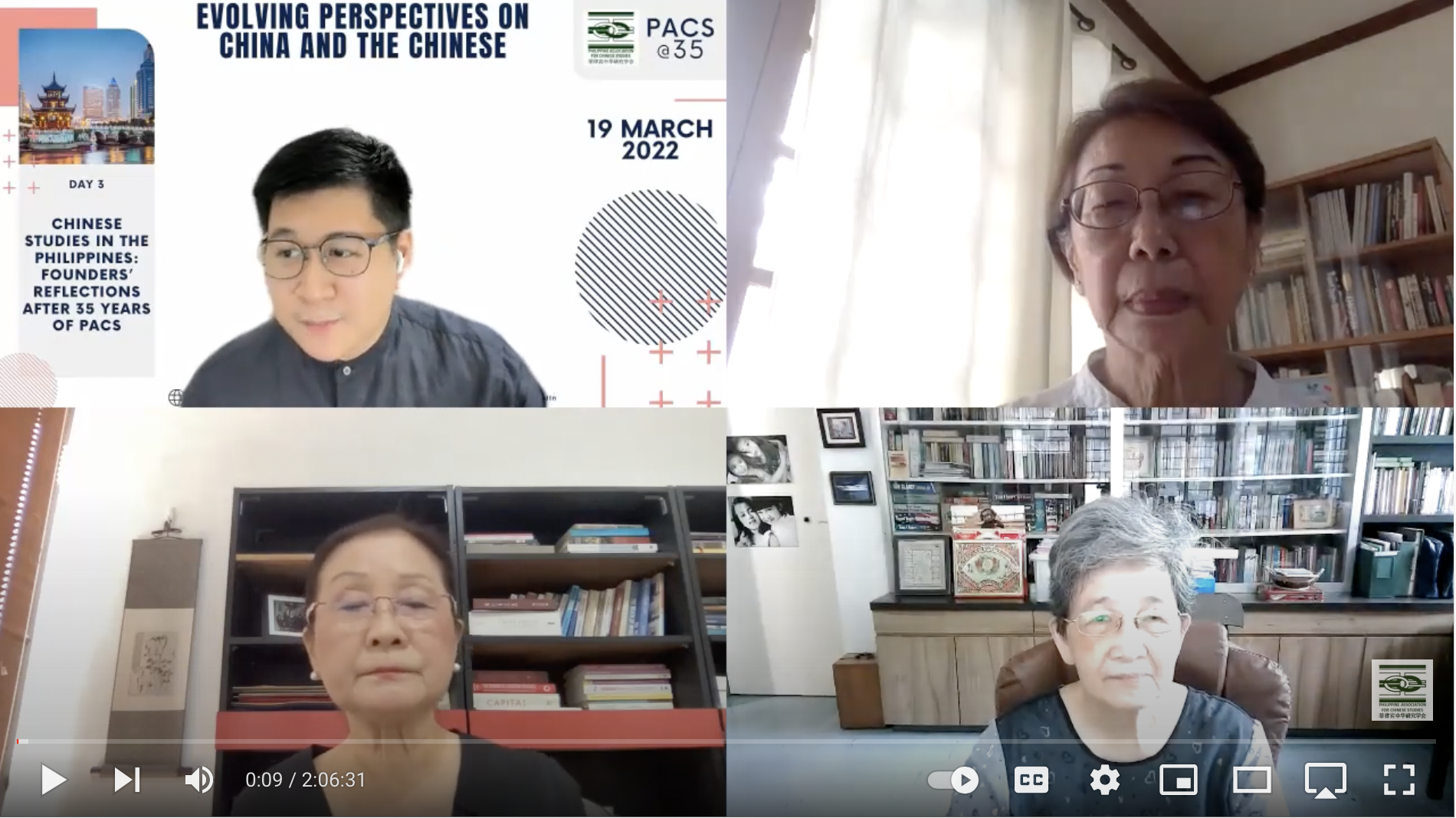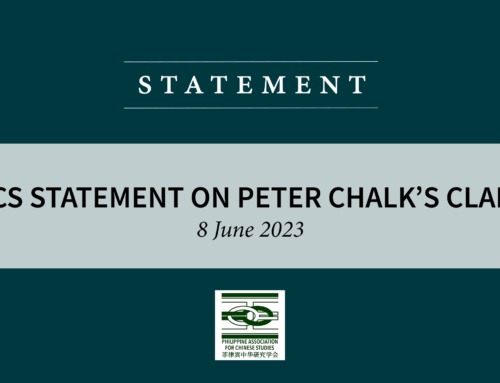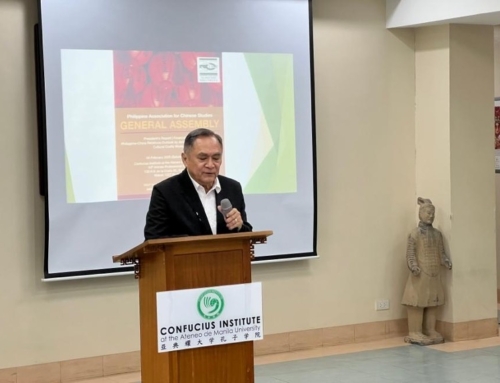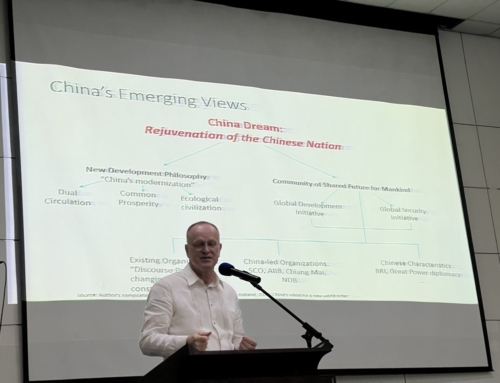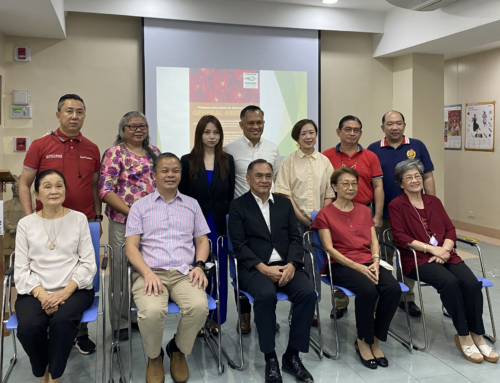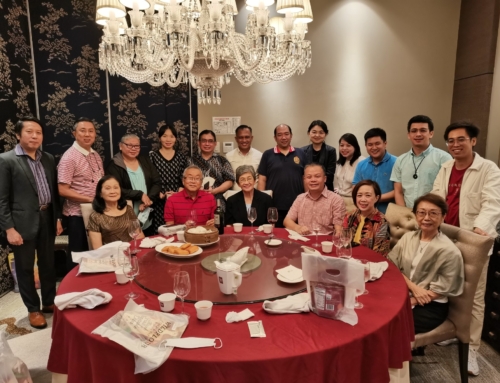Chinese Studies in the Philippines: Founders’ Reflections After 35 Years of PACS
19 March 2022 – The celebration of PACS @35 continued on the 19th of March, 2022 with the panel, entitled “Chinese Studies in the Philippines: Founders’ Reflections After 35 Years of PACS”. The panel was moderated by Mr. EG Dizon with speakers that included PACS’ early leaders, namely, Theresa Carino., Ellen Palanca, and Teresita Ang See. The panel aimed at highlighting some of the personal reflections of key founders who had also served as past presidents of PACS. Compared to the previous panels of the conference, this panel was unique in its use of an interactive format. The moderator introduced all speakers and asked each speaker if PACS has been able to meet its objectives 35 years after. Each speaker was given time to share their thoughts on why they decided to organize PACS in 1987. Mr. Dizon also asked the speakers what they thought PACS could still do to enrich Chinese Studies in the Philippines. The moderator encouraged the speakers to share their stories about PACS in the hope that these can inspire the next generation of scholars to further strengthen and promote Chinese Studies in the Philippines.
The panel was started by Dr. Theresa Carino who reflected on the founding of PACS, its journey through the years, and its continuing relevance today. Dr. Carino noted in her reflections that the formation of PACS had been preceded by networks of Filipinos who were interested in Chinese Studies. These networks connecting the academe and NGOs became the backbone of PACS. The second speaker to offer recollections about the founding of PACS was Dr. Ellen Palanca. She remembered the founding journey of PACS as long and not easy. One notable birth pain of PACS, according to Dr. Palanca, was the low membership in its early years. The third reflection was shared by Mrs. Teresita Ang See. Her involvement though accidental, focused on the perceptions of Filipino Chinese in Chinese Studies and on their relations with China. She also connected the formation of PACS to international and local events such as the rise of China and the struggle of post-EDSA People Power Philippines. The second question was about the initial goals of PACS. Dr. Carino pointed out that these goals are encapsulated on the organization’s current website: knowledge generation, community, and nation-building. Even in its early years, one of PACS’ main aims is to develop mutual understanding between the Philippines and China. Dr. Carino added that one of the organization’s long-term goals was to nurture Filipino scholars with an interest in Chinese studies to be able to read, write and speak Chinese. This would enhance access to information in Chinese, improve communication with Chinese scholars and deepen their understanding of China and its people. For Mrs. Ang See the goal of PACS is to enhance understanding of the role of Chinese Filipinos in Philippine life. The moderator then asked the speakers to identify some of the challenges they faced as PACS’ early leaders. For Dr. Palanca, it is retaining the focus and interest of members as they are also busy with their own personal growth. The last question focused on the contributions of PACS towards the improvement of Philippines-China relations. The speakers highlighted PACS’ role in policy-making related to Philippines-China relations over the years and in the territorial disputes in the South China Sea.
During the open forum, PACS’ current President, Dr. Rommel Banlaoi, expressed appreciation for the reflections and narratives of the past presidents on PACS’s founding history and hoped that the details could be written down and published. The program ended with these last words from the forum moderator, EG Dizon: “In 35 years, PACS has grown so much and has contributed not only to Chinese Studies in the Philippines but also to the strengthening of Philippines-China relations.”
PACS2022-05-11T16:56:31+00:00
Share This Story, Choose Your Platform!
